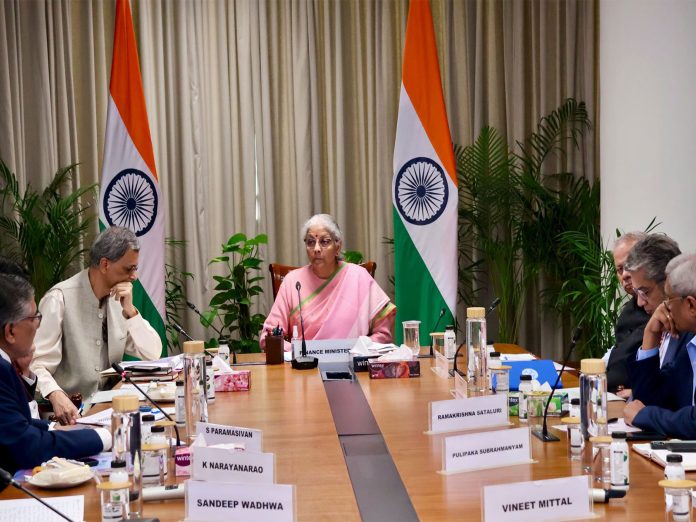Union Finance Minister Nirmala Sitharaman on Friday chaired the 11th round of pre-Budget consultations with experts from the infrastructure and energy sectors in New Delhi, marking another key step in drafting the Union Budget for 2026–27.
According to the Ministry of Finance’s update on X, the meeting saw participation from senior officials, including Secretaries from the Ministries of Power, Ports, Shipping and Waterways, and Road Transport and Highways, as well as the Chairman of the Railway Board and the Chief Economic Adviser.
“Union Minister for Finance & Corporate Affairs Smt. @nsitharaman chairs the 11th Pre-Budget Consultation with experts from the #Infrastructure and #Energy sectors in connection with the forthcoming Union Budget 2026-27, in New Delhi today,” the Ministry posted on X. It added that Secretaries from the Power, Shipping, and Road Transport Ministries, along with the Railway Board Chairman and the Chief Economic Adviser, were also present.
With this meeting, the Finance Minister has concluded 10 earlier rounds of pre-Budget consultations in New Delhi as part of the preparation process for Budget 2026–27.
Over the past several days, the Ministry held discussions with representatives and experts from a wide range of sectors—including agriculture, MSMEs, capital markets, manufacturing, services, and technology. Union Minister of State for Finance Pankaj Chaudhary, senior officials from the Department of Economic Affairs, the Chief Economic Adviser, and Secretaries from multiple ministries also joined these sessions.
The consultation series began with leading economists, followed by meetings with farmer groups and agricultural experts. Subsequent interactions included stakeholders from MSMEs, capital markets, startups, manufacturing, the BFSI sector, information technology, tourism and hospitality, and finally trade unions and labour organisations.
Participants shared their recommendations, sectoral challenges, and expectations for the upcoming Budget, with discussions centred on economic growth, job creation, investment climate, technological progress, industrial competitiveness, financial sector resilience, labour welfare, and sustainable development.
The broad-based consultations highlight the Finance Ministry’s continued commitment to inclusive and collaborative policy-making. Such engagements are a regular practice for the Ministry as it seeks stakeholder input and reviews major economic and non-economic policy priorities ahead of the Budget.















